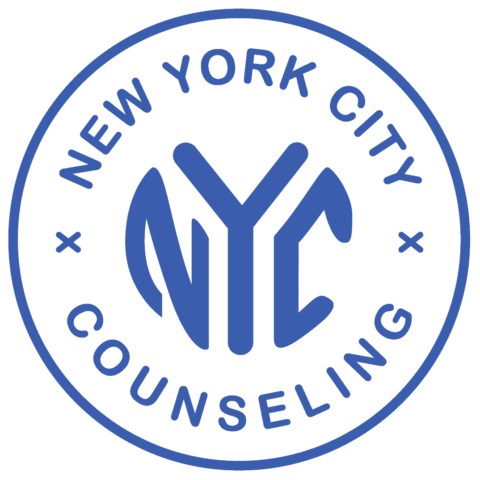What is a toxic relationship, and how do you know if you are in one?
A toxic relationship is any relationship that is emotionally, mentally, or physically harmful to one or both individuals involved.
These relationships can be romantic, friendship, family, or even work. Recognizing the signs of a toxic relationship is essential for your well-being and personal growth.
Toxic relationship statistics can vary depending on the specific definition of “toxic” and the context of the term. These relationships can look like the following:
Abusive Relationships
- According to the World Health Organization (WHO), about 1 in 3 (approximately 30%) women worldwide have experienced physical and, or sexual intimate partner violence or non-partner sexual violence in their lifetime.
- Domestic violence hotlines and shelters receive millions of calls each year in the United States alone, indicating the prevalence of abusive relationships.
Workplace Toxicity
- In a 2021 Gallup survey, 48% of employees in the United States reported experiencing abuse or hostility at work.
- A survey conducted by the Workplace Bullying Institute found that nearly 20% of respondents had experienced workplace bullying at some point in their careers.
Teen Dating Violence
- The Centers for Disease Control and Prevention (CDC) reports that 1 in 11 high school students have experienced physical violence in a dating relationship.
Emotional Abuse
- Emotional abuse is more challenging to quantify, but it is a significant aspect of toxic relationships. It often goes unreported and can be difficult to measure through statistics.
Cyberbullying
- In our digital age, toxic behavior extends to online spaces. According to a Pew Research Center survey, 59% of U.S. teens have experienced some form of cyberbullying.
Toxic Friendships and Family Relationships
- Statistics on toxic friendships and family relationships are less readily available due to the subjective nature of these relationships.
It’s important to note that many toxic relationships go unreported and are underrepresented in official statistics. The statistics above represent reported cases, but the prevalence may be higher due to underreporting, stigma, and the private nature of these issues.
What Are the Signs of a Toxic Relationship?
- You give more than you’re getting, which makes you feel devalued and depleted.
- You feel consistently disrespected, or your needs aren’t being met.
- You feel a toll on your self-esteem over time.
- You feel unsupported, misunderstood, demeaned, or attacked.
- You feel depressed, angry, or tired after speaking or being with the other person.
- You bring out the worst in each other. For example, your competitive friend brings out a spite-based competitive streak that is not enjoyable for you.
- You are not your best self around the person. For example, they bring out your gossipy side or seem to draw out a mean streak you don’t usually have.
- You feel like you have to walk on eggshells around this person to keep from becoming a target of their venom.
- You spend a lot of time and emotional strength trying to cheer them up.
- You are always to blame. They turn things around, so things you thought they had done wrong are suddenly your fault.
Take Note of These Traits
- Negative behaviors. Some people’s constant complaining, critical remarks, and negativity create a toxic environment.
- Other toxic traits may include perfectionism, unhealthy competitiveness, and frequent lying. A person may also let their insecurities bring out the worst in them.
- One (or both) people lack self-awareness. Sometimes, people are unaware of their harmful effects on others.
- They also may need to learn healthier ways to communicate. Likely, they don’t know how to read social cues well enough to know when they’re frustrating people or making them feel like they are being criticized or ignored.
- A person who intentionally hurts others. Some people are deliberately rude and hurtful. You may feel singled out and targeted in these situations through their mean words and actions.
- A person may also try to control or manipulate you, which is toxic behavior.
- A partner who is constantly cheating. If an intimate partner lies and cheats without even trying to change their behavior, it adds a toxic element to the relationship.
- An abusive person. When people repeatedly and intentionally hurt you, their behavior can be considered abusive.
- Whether they are constantly gossiping about you or they are physically harming you in any way, abuse is never OK.
How to Leave
How you end the relationship depends on your situation and how safe you feel.
- End the relationship: Tell the person directly that you are choosing to end the relationship and list your reasons.
- Let it fade: Let the relationship fade over time, slowly communicating with this person less and less.
- Discontinue communication immediately (particularly if a relationship is threatening your safety).
- Set boundaries: Establish clear boundaries and communicate your needs and expectations to the other person
- Seek support: Reach out to friends, family, or a therapist for support and guidance
- Focus on Self-Care: Prioritize self-care and self-love to heal from the emotional wounds of a toxic relationship
In the end, you have to do what’s best for you.
If you or someone you know is in a toxic relationship, it’s essential to seek help and support from professionals, helplines, or local support services. Remember that toxic relationships can have serious physical and emotional consequences, so addressing them is crucial for the well-being and safety of those involved.
________
Disclaimer: All blog posts are intended for educational purposes and cannot replace direct consultation with a professional provider. Please feel free to check our provider page for more information on our team of talented clinicians who can help you identify and challenge your negative thought patterns.
